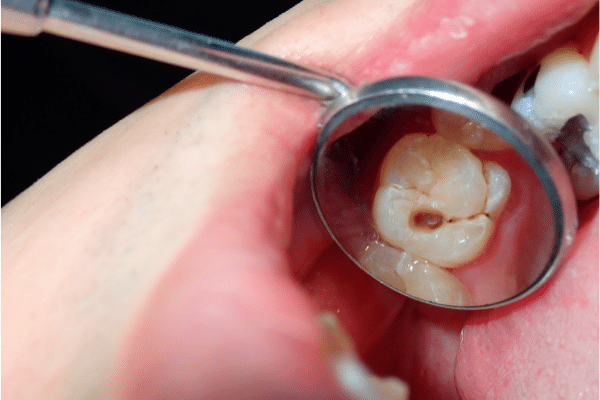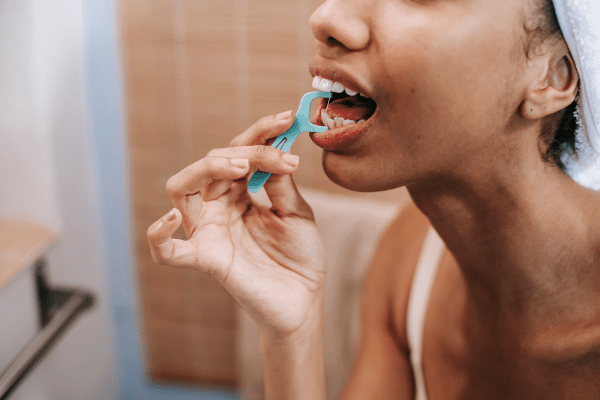Why You Should Consider Flossing on a Daily Basis
While it is important to brush your teeth on a daily basis to keep them healthy, it is also important to floss your teeth on a regular basis. One of the most common errors in dental hygiene is treating flossing as an option.
It can help you reach areas of your mouth that your toothbrush cannot. If you do not floss on a daily basis, half of the surface area of your teeth is not cleaned properly, which can lead to the build-up of harmful bacteria. It is also never too late to start practicing good oral hygiene and flossing your teeth on a regular basis.
Why is it necessary to floss your teeth?
Even if you brush your teeth thoroughly, you will only be able to access three sides: the front, the back, and the chewing surface, because these are simply unreachable from any other location in the mouth. In addition, the spaces between the teeth can trap leftover food, resulting in bacteria build-up.
Other types of interdental cleaners can easily reach these difficult-to-reach areas and aid in the removal of leftover food. This can help you avoid bad breath and may even help you avoid serious oral health problems.
What causes tooth decay?
Bacteria that accumulates on the top surface of the teeth causes tooth decay and it is one of the most common causes of tooth decay. It is a sticky residue that forms on the top and sides of your teeth. Bacteria in the teeth produce acid, which erodes the enamel on the teeth’s surface. This can make the teeth sensitive and result in the formation of cavities. If plaque is not removed on a regular basis by brushing, it can harden into tartar, which can only be removed by visiting a dentist in Hervey Bay. It can also cause decay, which may necessitate the use of a dental filling, a replacement crown or full dental implants.
Plaque is also the leading cause of tooth decay. This is due to the fact that it can irritate the tissues in the gums. As a result, inflammation can develop, causing painful and swollen gums. Gingivitis is the first stage of gum disease. It can, however, be treated with professional hygiene treatment and by improving your oral care habits. If gingivitis is not treated, it can progress to periodontitis, a more serious disease.
These are not the only issues that can arise; it can also result in a dental abscess, which is another cause of tooth loss. Gum disease increases your risk of other health problems such as diabetes and heart disease. People with poor oral hygiene frequently complain of gastrointestinal problems and respiratory tract infections.
How often should you floss your teeth?
Flossing is important, but the general guidelines for it differ from those for brushing. Flossing is usually recommended once a day, but your dentist may recommend it more frequently if they believe you need to improve your oral health. Also, if your teeth are chipped in such a way that food and bacteria can become trapped inside, flossing more than once a day is recommended. If you find that your teeth are a bit yellow, you might want to research teeth whitening options.
Should kids floss regularly as well?
Children’s teeth are more prone to decay than adults’ teeth. This is due to the fact that their teeth’s enamel is thin and they consume a lot of Carbohydrates and Sugars. Brushing and flossing are precautions that parents must take to protect their children’s teeth. Make sure you have a thorough discussion with your dentist about your child’s dental care at their regular check-ups.
Different types of floss and alternative to flossing
If you find yourself uncomfortable using a floss, there are several other options that you can explore, which are also easy to use. These include the following:
- Unwaxed floss: This is the most common type of dental floss because it is thin and can get into the narrow spaces between teeth, but it is prone to breaking and may not be as durable as other resources on the market.
- Waxed floss: it is a whole lot gentler compared to unwaxed floss and is designed specially for teeth and gums that are sensitive.
- Dental tape: dental tape is wider when compared to the regular floss, however it is recommended if there are wide spaces between your teeth.
- Pre-threaded floss: this kind of floss is ideal for children to hold because it makes flossing easy for them and it is also good for people who have mobility issues.
- Water flossers are hand held devices which spray a steady stream of water to get rid of the debris which gets stuck between the teeth.
- A dental pic is made of a plastic tape pic that cleans between the teeth and is simple to use. However, if you are not careful, you may end up irritating your gums, and it is best to avoid using wooden toothpicks to clean food from your teeth because they can easily damage the gums.
The proper way to floss your teeth
It is critical to floss your teeth on a daily basis to maintain proper oral hygiene. To floss correctly, however, you must follow the step-by-step guide.
If you’re using regular floss, you’ll need to wind about 4cm around the middle fingers of both your hands in order to make sure that you hold the short length between your thumb and index finger. Slide the floss slowly between the first tooth you want to clean.
It may be necessary to move it from side to side in order to gain access. Clean one side of the tooth from the bottom to the top, then move down to the opposite side. Make a point of repeating this process until all of the teeth have been cleaned. Proper flossing should take between 2 and 3 minutes, but it may take longer for some people, especially if the gaps between the teeth are large or the teeth are thin.
Although flossing can be difficult and time consuming, it is critical to keep your teeth and braces free of germs and odours.
Take your time cleaning the teeth gently, and avoid using too much pressure, or you may end up damaging your braces.
Other ways to care for your teeth
Flossing is not the only thing you should do on a regular basis; you should also brush your teeth at least twice a day for 2 minutes. Brushing gently with a soft bristle brush will help you avoid gum damage. Brushing immediately after eating or drinking something is also not recommended because it may damage the tooth enamel. To help protect your teeth from plaque, use fluoride toothpaste and drink fluoridated tap water.
Drink plenty of water and chew sugar-free gum to help stimulate saliva in your mouth, which will help neutralise the acid from the tartar. Last but not least, eat a well-balanced diet high in calcium and other vitamins, and limit your intake of sugary and acidic foods. Make sure to use a dentist-recommended mouthwash and to stop smoking and drinking, as these can be major risk factors in a variety of oral health problems.










